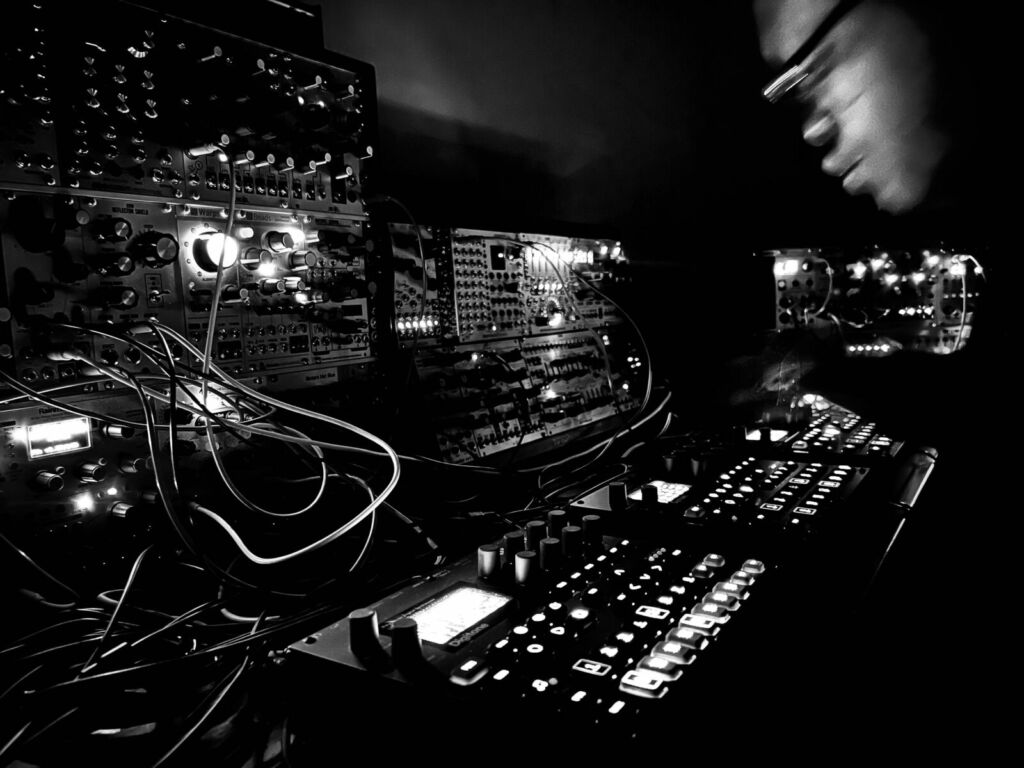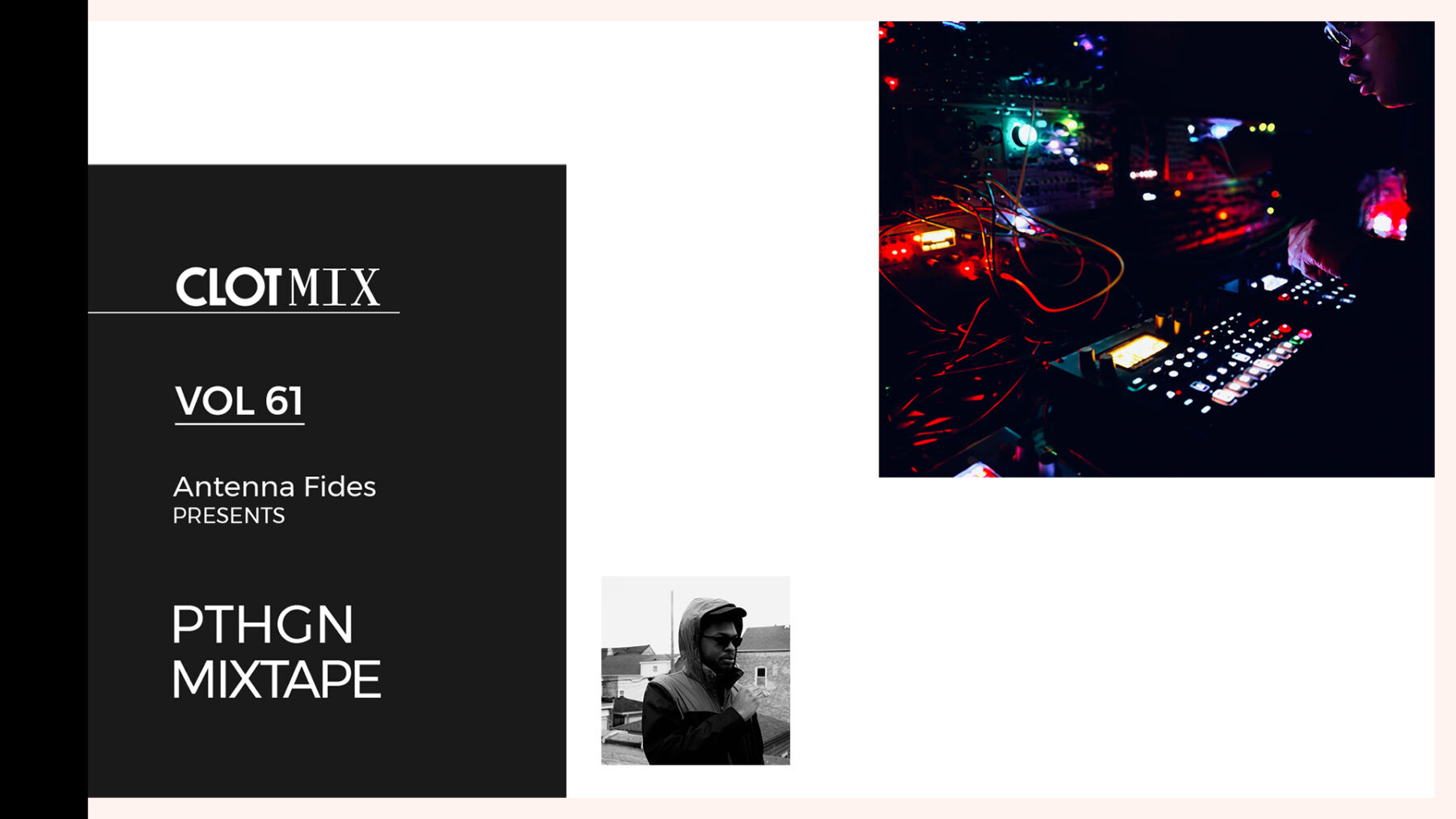Text by CLOT Magazine

The next mixtape instalment comes from American DJ and producer PTHGN, who has prepared a selection to give our audience a glimpse into what he might like to hear on a night out.
PTHGN roots in Chicago’s music scene have shaped his unique sound that blends electro with influences from techno to grime and everything in between. The artist started out as a visual arts student in Chicago and was initially drawn to music production after exposure to the city’s vibrant House, Techno and Footwork scenes.
His original work was more focused on the interplay between sight and sound, but his passion for a wide range of music genres, from electro to jazz and grime, led him to favour music creation and production. Emphasizing sound design innovation and musicality, PTHGN’s current approach utilizes hardware and modular synths for production and performance, solidifying his status as an emerging artist to watch.
PTHGN’s Binary Operation EP perfectly captures this with its pulsating drum breaks, dreamy pads, with urban vocal snippets. With a muscley but very suggestive sound, it’s Detroit electro with a fresh, dynamic twist. The EP was recently released in Fides, a Berlin-based record label founded by Tresor Resident Z.I.P.P.O. in 2015. The label releases music influenced by electro, techno, and IDM genres.
For the mixtape he has prepared for us, PTHGN adds that he tried to include as much as he could as far as influences go, within reason: I wanted to showcase something way outside the sounds of my EP to give a glimpse into what I might want to hear on a night out and also shine a light on some artists from past and present whose sounds keep me motivated.
The Binary Operation EP is your most recent release. Could you give us more details about your creative process for its production? What made you evolve from your original work focused on the interplay between sight and sound to your current productions?
Concerning my shift away from visual art and the decision to focus on music fully, I figured it would be better to commit to the sonic side of things and then take the opportunity in the future to collaborate with other artists who are solely focused on visual work rather than spread myself too thin trying to cover all aspects of a project.
We read that Binary Operation is Detroit electro with a fresh, dynamic twist. What were you exploring at a more technical or compositional level during its production?
Funny enough, this is actually the least technical set of tracks I’ve worked on in a very long time as far as gear is concerned. This project came about before I had as much kit as I currently do so it’s been really interesting hearing these tracks and making notes on how I go about composing on just a laptop as opposed to a table full of synths.
What were some of your artistic inspirations for or during the composition of your
album? (it doesn’t have to be music)
At the time I wrote these songs, I was doing a deep dive into the music I listened to growing up and, in particular, a lot of Rap music that came out of Memphis in the mid to late 90s. When selecting the samples I used my goal was to pay homage to the sounds and production styles of those artists while also making an attempt to bring them “into the future,” so to speak.
Your roots in Chicago’s music scene have shaped your unique sound, blending electro with influences from techno to grime. What have you been most excited about recently about the Chicago scene?
Well, it’s been many years since I lived there regularly, so I’m by no means any kind of authority on the subject but one thing I do find interesting is how popular juke/footwork has stayed there despite the ebb and flow of its popularity globally over the years.
It’s very inspiring to see because the fact that a lot of the same artists have stayed around while also bringing new artists into the scene to me shows a lot of dedication to keeping the sound alive.
What is your relationship with new technologies for your productions these days?
I try to incorporate anything I find interesting while also making sure to keep the music as the focus. As much as I love new toys, the thing I ask myself whenever looking at VSTs, synths, or Eurorack modules is “Can I actually fit this tool into my music?
And how do you cope with technology (screen/digital) overload?
For me, there’s no such thing! We’re in a golden age as far as music technology is concerned, and I try to keep myself open to whatever’s coming next.






